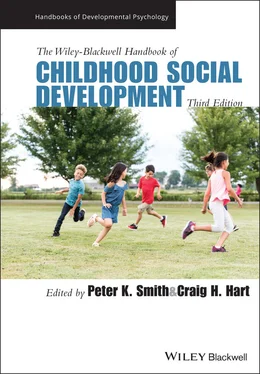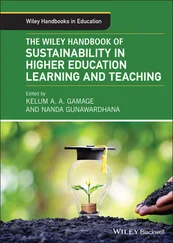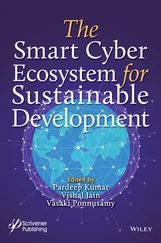The UNCRC, while providing a rationale for seeing children as autonomous agents and key informants, has not, however, been universally welcomed by either child‐centered anthropologists or indeed those interested in studies of socialization and social development. Robert LeVine, for instance, rejects the argument that an anthropology of childhood should focus only on children as active agents, existing in their own world, refuting the claim that studies of childrearing are in some ways dismissive or even oppressive of children. He argues (2003, p. 5) that studies of socialization do not treat children
simply as objects rather than subjects, suppressing their voices and taking their perspective of the adults who oppress, victimize and exploit children. These allegations come from those who see an anthropology of childhood as a political weapon against injustice like political struggles to end the persecution of women and ethnic minorities, rather than a search for knowledge and understanding. One of the strengths of socialization research is that it has resisted this kind of politicization in its pursuit of a deeper understanding of children and their parents.
However, the United States is the only member state in the world not to ratify the UNCRC and children’s rights, inevitably, have different standing and meanings among US researchers. Whether or not any studies of childhood can be politically neutral is much debated and, as argued earlier, the lack of a political dimension and a failure to understand diversity or privilege is one of the criticisms levelled at psychologists from those in the New Social Studies of Childhood. Even so, while the cultural politics of childhood, and children’s rights in particular, have been a source of inspiration to child‐centered anthropologists, there has also been a certain amount of frustration and distrust of any universalization of childhood, whether from psychological theories or international legislation. On a macro level there have been concerns that the UNCRC has created a notion of a universal childhood, globalized in line with inflexible Western standards and ideals, which is being imposed on cultures with very different notions of what a child is, how they should grow up and what the relationships between adult and child should look like, and which does not allow for cultural variation or political and economic circumstances (Boyden, 1997). The Convention, for example, clearly defines a child as any person under the age of 18 but anthropologists have pointed out that this simply does not hold true in many societies where children marry, bear their own children, work, or are initiated as adults before the age of 18 and where personhood is thought about very differently and both childhood and adulthood acknowledged at different times and in different ways. On a micro‐level, anthropologists have also argued that an insistence on children’s rights has the potential to destabilize family relationships, undermine parental authority and change understandings of what a good childhood looks like and how children should interact with others and develop socially (Burr, 2004). In Ghana, for example, some research has suggested that parents believed that children’s rights would lead to division within families, cause children to become selfish, neglect their parents and forego their responsibilities and reciprocal obligations. In one study, parents said: “we don’t want Western children in Ghana” (Twum‐Danso, 2009, p. 426).
Anthropology and Social Development in the 21st Century – Tentative Steps Towards Dialogue
Despite this history, recent years have seen tentative steps towards rapprochement and an understanding of the need to work across disciplines to understand children’s social development holistically (Tatlow‐Golden & Montgomery, 2021). Spurred on, in part, from the insights of the New Social Studies of Childhood, many of the assumptions of 20th‐century psychology are now actively being critiqued from within: increasing visibility is being accorded to developmental psychologists who take cultural, sociological, ethnographic, or child‐centered approaches to studying children and childhoods, and build contextualized understandings of concepts such as social development into studies of children’s lives. Social psychologists such as Martin Woodhead (1999) and Erica Burman (1996) have challenged the idea that “social constructionism” and “psychology” are mutually exclusive terms and rejected the idea that children’s development can be viewed as a universal, unidirectional process of maturation which can be identified in a single cultural setting with simple experimental studies. Increasingly too, psychologists from Africa and Asia are beginning to question the use of the Western child as the developmental norm (Serpell & Marfo, 2014).
There is also a growing recognition that some psychologists have, since the 1970s, and indeed long before the rise of the New Social Studies of Childhood, argued that social development should be seen as a series of culturally and environmentally situated and transactional series of processes (see Chen & Eisenberg, 2012) and that these need not be incompatible with child‐centered research. This is particularly the case with the increasing use made of cultural‐ecological models within the New Social Studies of Childhood, especially those developed by Urie Bronfenbrenner (1997). His bio‐ecological model of human development, generally presented as a set of nested circles radiating out from the child, representing the contextual systems in their environment, definitively places the child at the center of research and recognizes the interplay between the levels of influences and – implicitly – the child’s agency (Tatlow‐Golden & Montgomery, 2021). Other psychologists have also used cultural‐ecological models to cross disciplinary boundaries. Barbara Rogoff (1990, p. vii), for example, in her cross‐cultural work with children, coined the phrase “‘guided participation” and stated that: “child cognitive development is an apprenticeship – it occurs through guided participation in social activity with companions supporting and stretching their understanding of and skills in using the tools of culture” – a conclusion similar to that detailed in the work of David Lancy. Her subsequent work (2003) has reinforced the idea that individuals and cultures shape each other, and that development is a continual and lifelong process of transformation through both adults’ and children’s interactions with cultural practices and institutions.
This turn towards interdisciplinarity has not been one‐way. There have been concerns that the anthropological notion that childhood is socially constructed has become a “theoretical orthodoxy” (Wyness, 2015, p. 19) and descended into cliché (Alanen, 2015). After all, childhood (however it is defined) is a distinct stage in the human lifecycle and anthropologists have found no cultures which do not distinguish between children and adults and, on a “common sense” level, people can usually recognize a child even if they cannot analyze or articulate what the category “childhood” means. Alan Prout, whose work was seminal to the development of the New Social Studies of Childhood, has cautioned against rejecting developmental and biological understandings of children and childhoods: “However illuminating it is to regard childhood as a social phenomenon, it is not and has never been purely social. In fact it is hard to envisage what a ‘purely social’ phenomenon would look like” (Prout, 2005, p. 2).
Other orthodoxies, once central to the New Social Studies of Childhood, have also been challenged and rethought in the new millennium. The idea that children are social actors in the here and now, who needed to be theorized as people in their own right – the human “beings” of the New Social Studies of Childhood rather than the human “becomings” of developmental psychology or the subjects of socialization – has ultimately proved to be yet another limiting binary as it reinforces the notion that adulthood is a complete, stable, and independent end point, which is not subject to change over time (Uprichard, 2008). Lee (2001, p. 103) argues that in a postmodern world, both children and adults experience lives that are changeable and unstable, “fundamentally dependent and incomplete,” and that differentiating between being and becoming, whether psychologically or anthropologically, makes little sense.
Читать дальше












